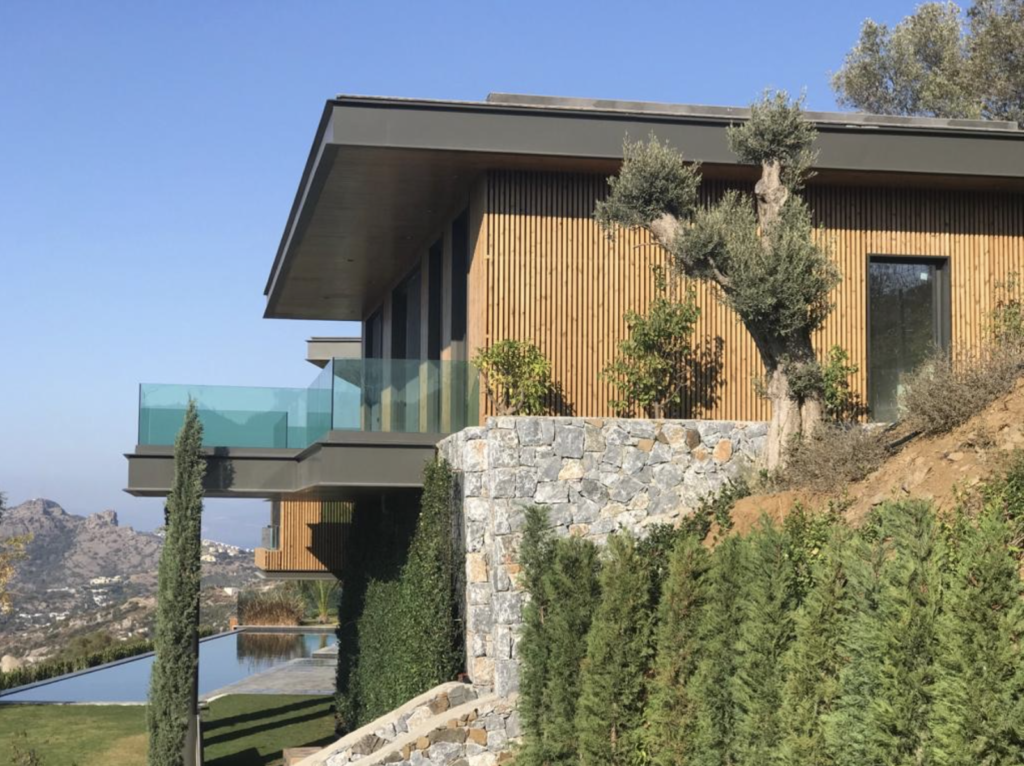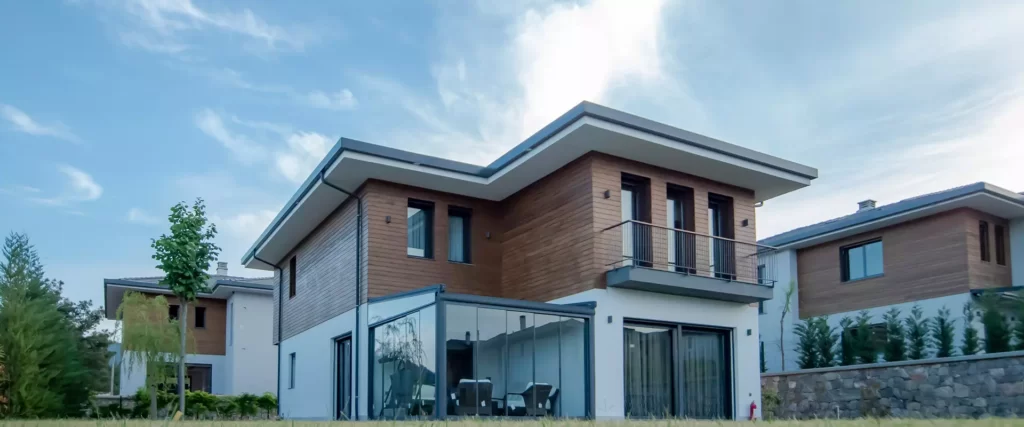Thermally modified wood offers a sustainable and durable alternative to traditional lumber–one that transforms wood through high heat treatment.
But if you’re looking to use thermally modified wood on a new project, you need to understand the differences between the thermally modified wood species.
Fortunately, we’re about to explore the top species of thermally modified wood and focus on their unique advantages and applications.
The Thermowood Process Enhancing Durability and Sustainability
The thermally modified wood process—developed in Finland and globally recognized—is a trademarked method for thermally modifying wood.
This process enhances the wood’s durability and eco-friendliness without using any harmful chemicals.
The key stages include:
- Initial Heating: Moisture is removed by gradually increasing the temperature.
- Thermal Treatment: Wood undergoes high-heat treatment, which alters its structure to improve resistance to decay, moisture, and insects.
- Cooling and Conditioning: The wood is cooled and re-moisturized to ensure dimensional stability, preventing warping or shrinking over time.
Common Thermally Modified Wood Species
Here are some common thermally modified wood species to choose from:
1. Thermowood Hemlock
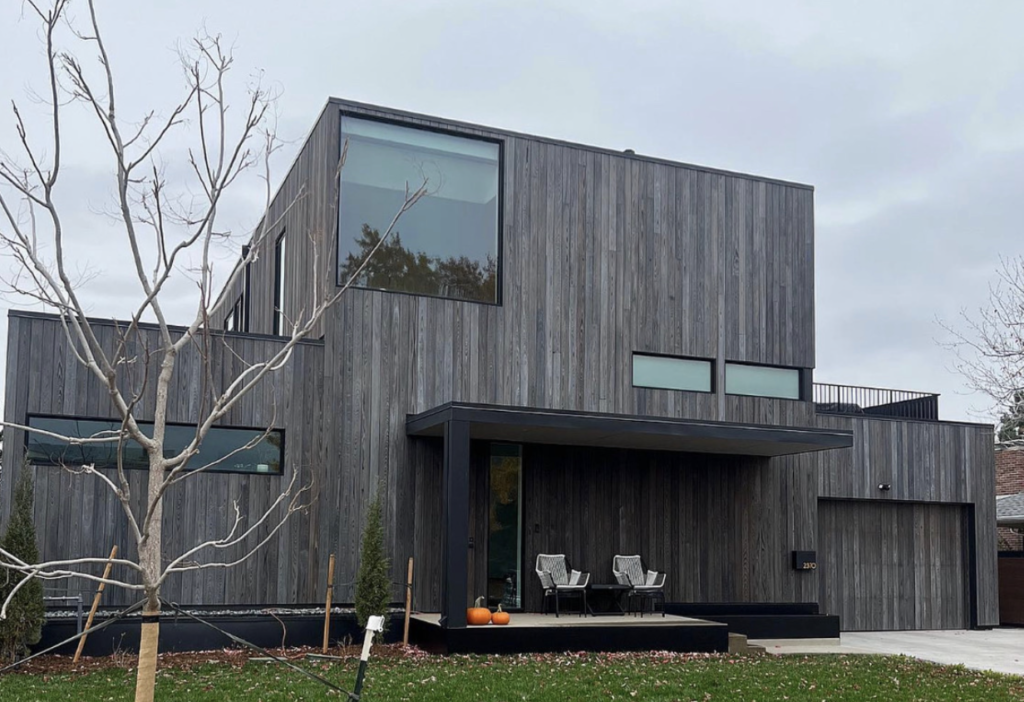
Thermo Hemlock is often used in architectural projects where light wood tones and dimensions are stable.
The thermal modification process makes it less prone to warping or twisting—and is ideal for humid environments like saunas.
- Applications: Suitable for both interior and exterior cladding, decking, and paneling.
- Lightweight: Its ease of handling is beneficial for intricate architectural designs.
- Aesthetic Appeal: Light color with the potential to develop a silver-gray patina.
2. Thermowood Spruce
Thermo Spruce is valued for its durability and fine grain—particularly in interior paneling and siding.
- Applications: Commonly used for siding, decking, and interior paneling.
- Sustainability: Sourced from managed forests, aligning with eco-friendly practices.
- Aesthetic Appeal: Its neutral, light grain pattern fits a variety of design styles.
3. Thermowood Tulipwood
Tulipwood is gaining popularity for its high stability and rich, dark color post-modification.
- Applications: Ideal for cladding, interior paneling, and decorative elements.
- Durability: Withstands moisture and humidity, suitable for exterior projects when treated with finishes.
4. Thermowood Oak
Particularly red and white oak, Thermo Oak offers strength and resilience for harsh outdoor conditions.
- Applications: Perfect for cladding, decking, and even outdoor furniture.
- Aesthetic Appeal: Its rich, uniform color makes it versatile for both modern and traditional designs.
Best Performing Thermally Modified Wood Species
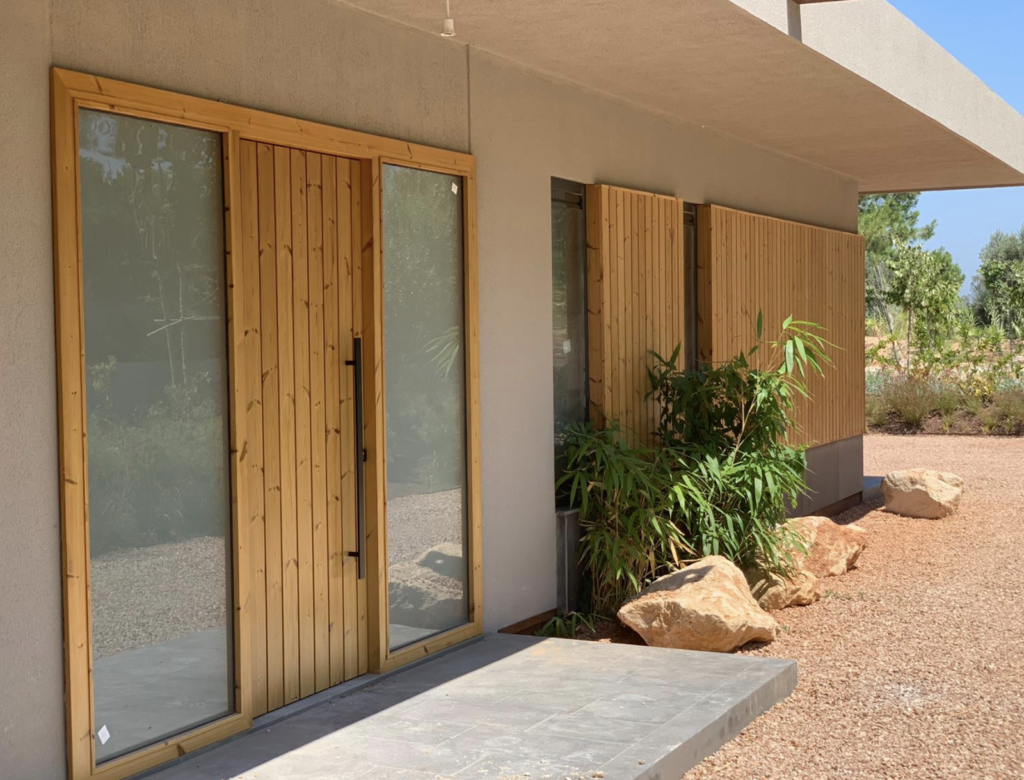
However, some of the best thermally modified wood species, especially for construction projects, require a combination of durability, eco-friendliness, and aesthetic versatility.
The three top choices are:
- Thermo Pine
- Thermo Ayous
- Thermo Ash
These species excel in diverse applications and offer sustainable building options that meet modern construction needs.
Thermowood Pine
Thermo Pine is renowned for its excellent durability and sustainability, which makes it a favored choice for numerous construction projects.
Key Features:
- Versatility: The go-to choice for outdoor applications, known for its dimensional stability and enhanced resistance to decay.
- Longevity: an ideal option for decking and cladding because of its reduced moisture absorption.
- Sustainability: Thermo Pine is sourced from plantation forests.
Application Highlights:
- Exterior Cladding: Its stability ensures long-lasting performance in various architectural styles, whether modern or traditional. Thermo Pine can handle the demands of fluctuating weather conditions.
- Decking: The natural golden hue provides an appealing aesthetic and can either be maintained or allowed to weather to a silver patina.
Why Choose Thermo Pine?
- Eco-Friendly: The wood is naturally durable without the use of harmful chemicals, making it a responsible choice for eco-conscious projects.
- Aesthetic Flexibility: Its ability to develop a rich patina over time allows for multiple design aesthetics—from natural to weathered styles.
Thermowood Ayous
Thermo Ayous stands out for its exceptional lightweight properties and flexibility, which makes it an ideal choice for contemporary architectural designs.
Key Features:
- Lightweight: Prized for its lightweight, making it easy to handle during installation.
- Moisture-Resistant: Stable and reduced warping, which makes it an excellent choice for humid environments
- Smooth Texture: The fine grain and smooth texture make Thermo Ayous ideal for interior and exterior paneling.
Application Highlights:
- Cladding and Paneling: Thermo Ayous is a top choice for cladding large buildings or intricate interior projects that require both flexibility and stability.
- Interior Decorative Projects: Architects and designers frequently select Thermo Ayous for interior decorative applications, where lightweight materials are required to achieve specific design outcomes.
Why Choose Thermo Ayous?
- Versatility: Its lightweight nature allows for seamless incorporation into both indoor and outdoor projects, from modern, clean-lined facades to intricate paneling work.
- Moisture Resistance: Thermo Ayous performs exceptionally well in environments with high humidity, making it a solid choice for bathrooms, saunas, or exterior cladding in damp regions.
Thermowood Ash
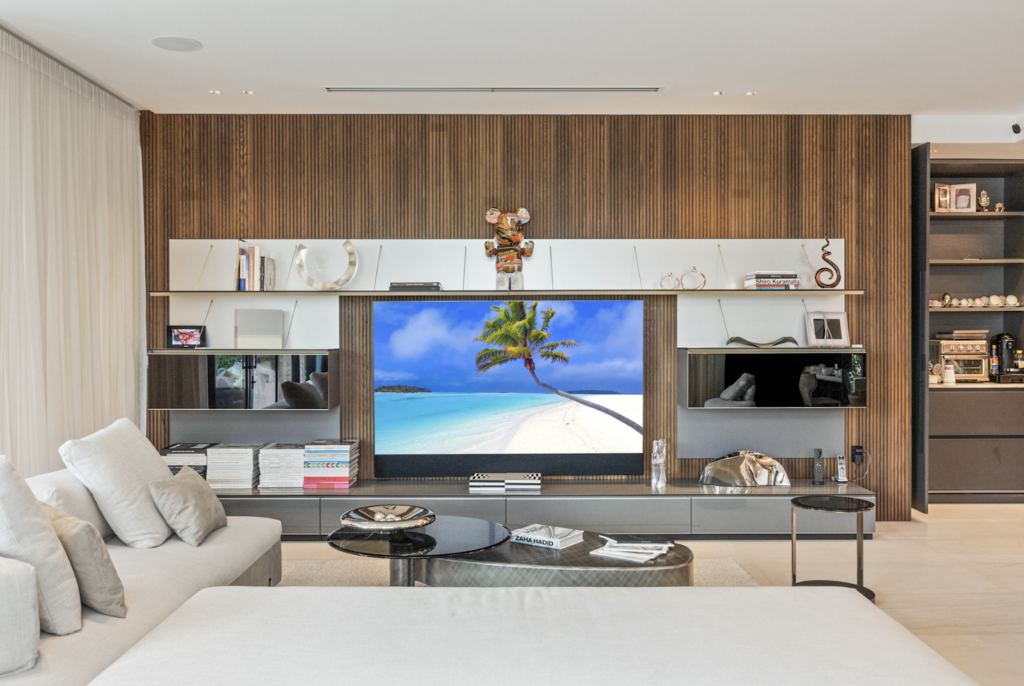
Thermo Ash is celebrated for its unmatched strength and elegant appearance.
Key Features:
- Durability: Known for its high strength.
- Rich Color and Grain: Deep tones that develop beautifully post-modification.
- Dimensional Stability: Thermo Ash resists warping and shrinking.
Application Highlights:
- Decking: The strength of Thermo Ash makes it a preferred choice for decking, where long-term durability is essential, especially in high-traffic areas.
- Interior and Exterior Cladding: The fine grain and luxurious color are highly sought after for interior paneling in luxury spaces as well as for exterior cladding, where aesthetic appeal meets durability.
Why Choose Thermo Ash?
- Premium Finish: Thermo Ash offers both visual appeal and functional strength, making it a standout option for projects where design and durability are equally important.
- Long-Term Value: Its enhanced durability and minimal maintenance requirements make it an excellent investment for high-end residential or commercial projects.
Sustainability Certifications: Responsible and Eco-Friendly Wood Sourcing
Thermally modified wood products frequently carry certification from the Forest Stewardship Council (FSC), signifying their origin from responsibly managed forests.
This certification ensures that the wood is harvested in a manner that preserves forest biodiversity, safeguards ecosystems, and upholds the rights of indigenous communities.
Select the Right Thermally Modified Wood Species for Your Project
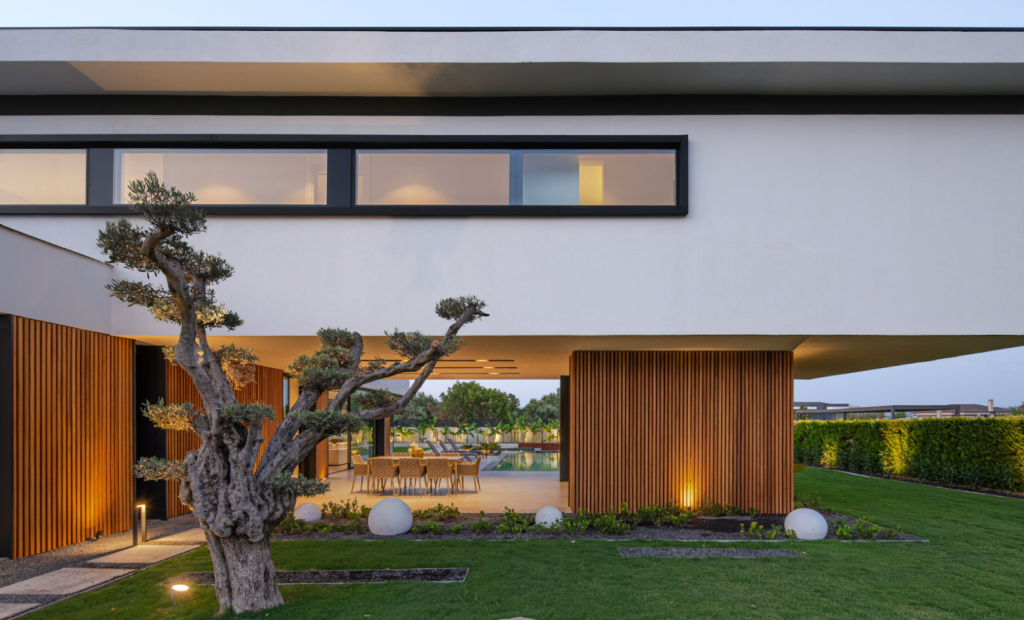
When choosing thermally modified wood, you need to find a balance between durability, design flexibility, and eco-friendliness.
Thermo Pine, Ayous, and Ash each provide unique benefits that are suited to various interior and exterior project needs.
Whether you require the lightweight versatility of Pine or the strength and premium finish of Ash, thermally modified wood is a choice that ensures long-lasting quality and sustainability.
